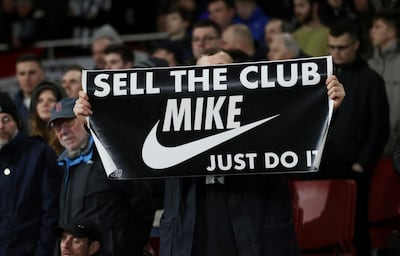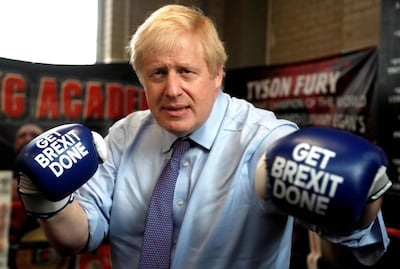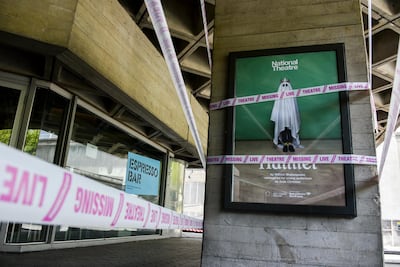One of the prime justifications for Britain’s exit from the European Union was that London could be a more nimble policymaker. Adoption of better strategic frameworks, not so dominated by the process of the EU, would make for a more attractive international player.
The withdrawal of Saudi Arabia's interest in buying the Premier League football club Newcastle United last week sends a worrying signal in the opposite direction. The Saudi-backed consortium pulled out because the deal had been going nowhere for months.
There can be no excuse in the preoccupation with the Covid-19 pandemic.
Premier League is one of Britain’s biggest earners. For this generation it represents what coal and steel did for their grandfathers' generation. What happens on the pitch is the lifeblood of sport. But the wider considerations flowing from the Saudi Arabian interest in owning Newcastle should have been within the Prime Minister Boris Johnson’s hawk-like vision.
The reasons it did not are worrying signs that the direction of travel for Britain is moving in contraflow to its stated vision of fleet-footed international competitor.
It was not that some officials did not recognise the importance of the moment. The British ambassador in Riyadh moved strongly to embrace the deal. Neil Crompton was a weighty warrior. He had some backing from the behind-the-scenes heavyweight Edward Lister, Mr Johnson's chief of staff, for his efforts.
Beyond Whitehall there was an unusual groundswell from the fans. The pandemic lockdown has left the wolf knocking at the door of many football clubs. For all its formidable calls to loyalty, Newcastle fans recognise as fragile their claims to a place in the top spot if growth does not come from strong ownership backing. In mid-July Alan Shearer, the club's former manager, eyed the impending transfer season and implored the Premier League to get the deal done.
The Premier League’s iron bureaucracy acted as if it hadn’t heard. Having inherited the very rich prize of the most marketable assets in the world, there are genuine questions about how its custodianship is exercised.
However, this is not the place for those questions. The issue at hand raised by the failure of the Newcastle takeover is the reliability of Britain as an international partner.

Newcastle is something of a place apart in the north-eastern part of Britain. The patchwork of tribal allegiances to football clubs makes for tricky landscape that politicians in London prefer to avoid. Yet the region is to Mr Johnson what the American state of West Virginia is to US President Donald Trump: it is the source of a deep seam of support that crossed the ideological rubicon to support the Conservative leader.
There is a general expectation that Mr Johnson must show London is now on the side of the northern "Red Wall" areas – the once Labour party-supported constituencies in the Midlands, Yorkshire and northern England, which suffered from deindustrialisation.
The flip side of that coin is that the accusation of betrayal is never far from the lips of doubters. Far worse is the idea that Mr Johnson, just like the generation of Conservative leaders that were reviled there, couldn’t care less about the fate of these regions.
That is where the lack of nimble footwork over the Newcastle bid matters.

There was no political mobilisation to generate real and effective groundswell for the bid into the political arena. A comment from a cabinet minister or the sports minister did not make for strategy. It is hard to imagine that this negligence would be case if there was massive investment on offer for a struggling bus manufacturer.
The newbie Red Wall members of Parliament were missing in action. Few were tapped as advocates. Nor was the group mobilised to use their political mass and fresh political clout for the proposal.
Instead, by default, it withered away in a fit of inadvertent political neglect.
It is early days but the international interest in how Mr Johnson runs Britain is facing a series of tests like this, and his government appears to be ducking the challenges. The Conservative leadership made commitments to free trade and open investment accords that should see international money flows towards Britain, not its rivals.

For reasons that are not wholly related to the black hole in public finances caused by the pandemic, there are concerns policies will instead be hostile.
It is considering wealth taxes that would essentially target property and business investment gains. The borrowing needed to keep the economy stable in recent months is of a vast scale. Trusting that Mr Johnson will not go for "easy pickings" from investors should be a fairly safe bet. There is no evidence for this.
For the moment Mr Johnson's government is overwhelmed with the politics of first easing and then retightening the lockdown. The future could shape up as a motley trail of decisions made with such beleaguered insouciance.
Damien McElroy is the London bureau chief of The National






























